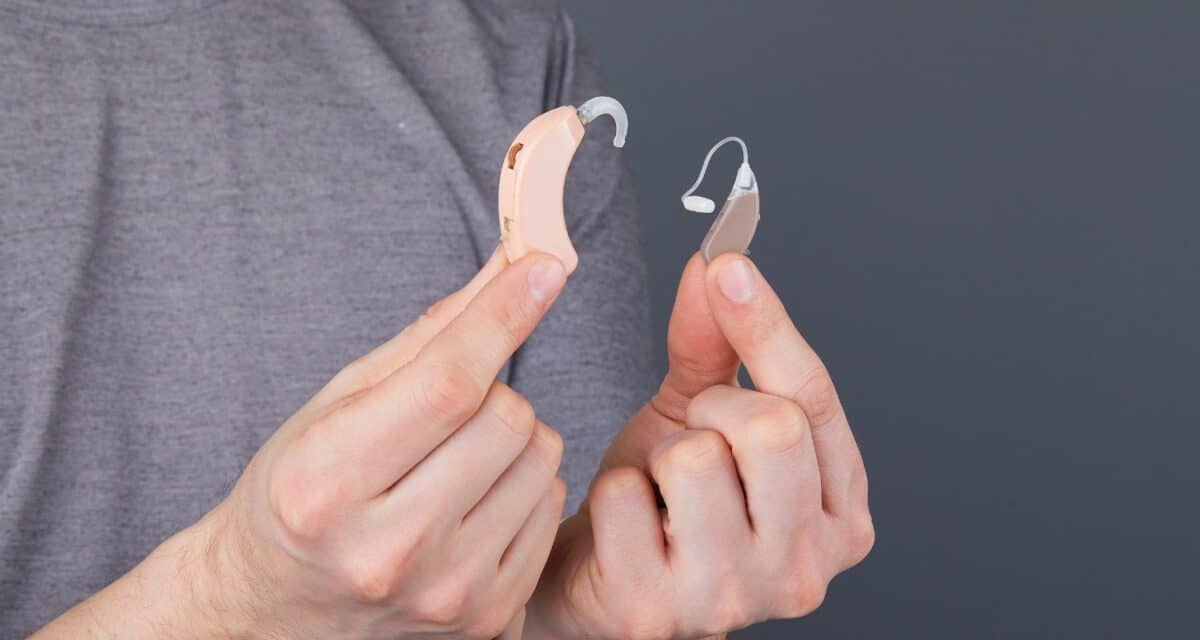- The Impact of Hearing Aids on Veterans’ Lives - February 15, 2024
- Hearing Health: A New Year’s Resolution for a Vibrant Life - January 16, 2024
- Unraveling Misconceptions About Hearing Loss - December 12, 2023
Hearing Aids Are Not Used as Commonly as They Should Be
Do you ever really wonder about how common eyeglasses are? Glasses are ubiquitous enough, you are likely to hardly even notice whether or not someone wears them. And this is not even taking into account contact lenses, which might actually be a better analogy for hearing aids. If there is any social stigma around the need to wear glasses, it is so rare and obscure that no one would take it seriously.
But consider how common hearing loss is. Less than three out of every 1,000 births in the U.S. results in some manner of congenital hearing loss, but around 13% of everyone in the U.S. aged 18 and above suffers from some detectable degree of hearing loss. It is impossible to get an exact number, for a variety of reasons, but most significantly because such an extreme ratio of these cases go untreated. The percentage of the population that lives with hearing loss increases steadily with age until, unbelievably, more than half of everyone aged 75 years old and older lives with it.
But how many of these people recognize the seriousness of hearing loss and the havoc that it will unleash on their lives? Sadly, less than 20% of everyone with hearing loss seeks treatment. Put another way, an astonishing 80% or more of everyone with hearing loss deals with it responsibly.
Research has proven that even among those people that regularly wear hearing aids, they have waited an average of seven years between first thinking that they should probably do so and actually taking the initiative to make a habit of it. Taken in sum, these facts all point to one conclusion: by any manner of calculation, hearing aids should be much more commonly used than they are.
There are many reasons that explain why people may so commonly resist or delay wearing hearing aids. There are dangerous and antiquated stereotypes to overcome. People likely face a psychological resistance within themselves to admit that they are aging and wearing hearing aids would represent that undeniable truth to them. Simple vanity might explain it sometimes. But most hearing aids are only around 1.5 cm long and rest comfortably behind your ear. They are barely more noticeable than contact lenses.
So, 13% of the population suffers from hearing loss and more than 80% of them do so without appropriate treatment. And they do this only due to giving power to stupid old stereotypes. Meanwhile, of the almost 30 million Americans that wear hearing aids daily, 83% of them report “high satisfaction” with the choice that they have made to do so.
How Will You Know When It is Time to Update Your Hearing Aids?
We will assume that you are among this savvy minority of people who prioritize your own quality of life enough to take the simple initiative to wear a hearing aid. And why wouldn’t you be? Hearing aids are indeed an investment, but isn’t the ability to experience your world in vivid detail with ease worth the investment
But just like any other machine, hearing aids will eventually diminish in power and eventually malfunction. Given their delicate mechanics, hearing aids actually have a pretty significant average lifespan: three to seven years, depending on one’s personal habits and attentiveness to their upkeep. It is safe to say hearing aids need replacing about every five years. Considering that they are used every waking hour of every day, that is hardly an unreasonable lifespan.
Hearing aids involve some unique maintenance. At the risk of getting a little gross here, let’s be honest. Moisture will build up in them over time and that is obviously a risk to their circuitry. If one is not particular about their hygiene, ear wax can build up and that will dampen the hearing aid’s effectiveness, creating distortion or volume reductions. But given how common these problems are, audiologists have plenty of plans and special cleaning kits on the ready for you to deal with these issues.
And advancements in hearing aids technology race forward every day. As older models become obsolete, servicing them becomes difficult and you may have no option but to upgrade. But the spectrum of the customizable options in the newest models give you incredible freedom and power over your own experience. No two people’s hearing loss are exactly the same, so no two people’s hearing aid needs will be exactly the same. Depending on your unique needs, habits, and budget, your audiologist will help you determine exactly what is right for you.

